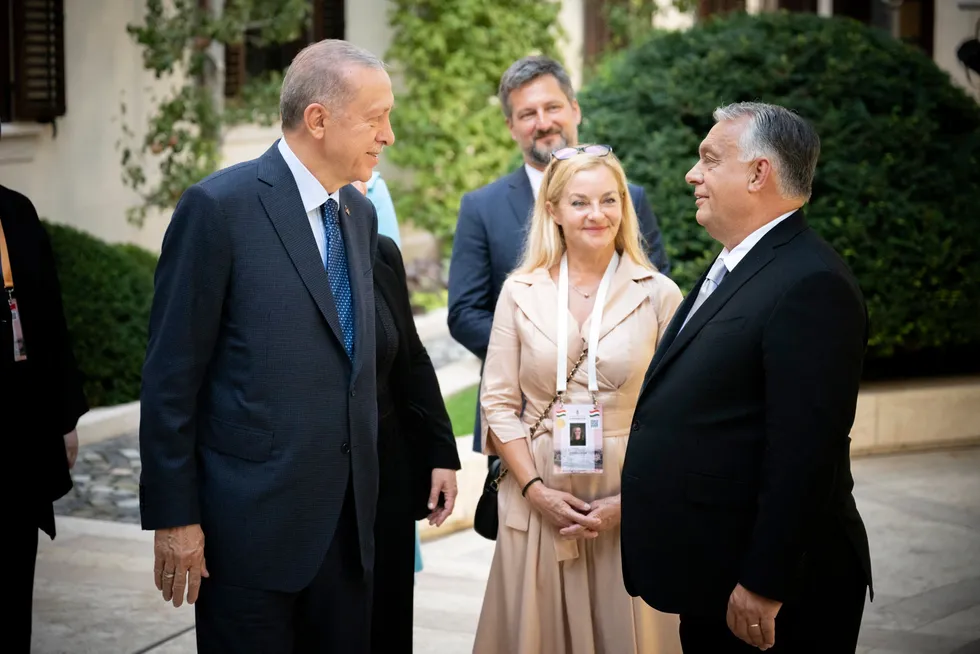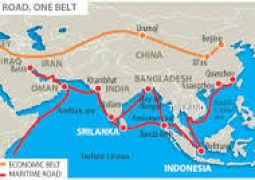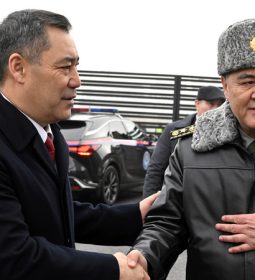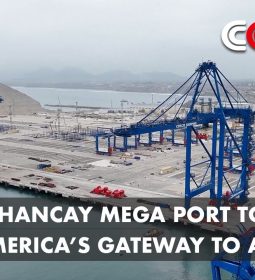EU’s new leader (for 6 months) Hungary seeks better strategic ties with Türkiye
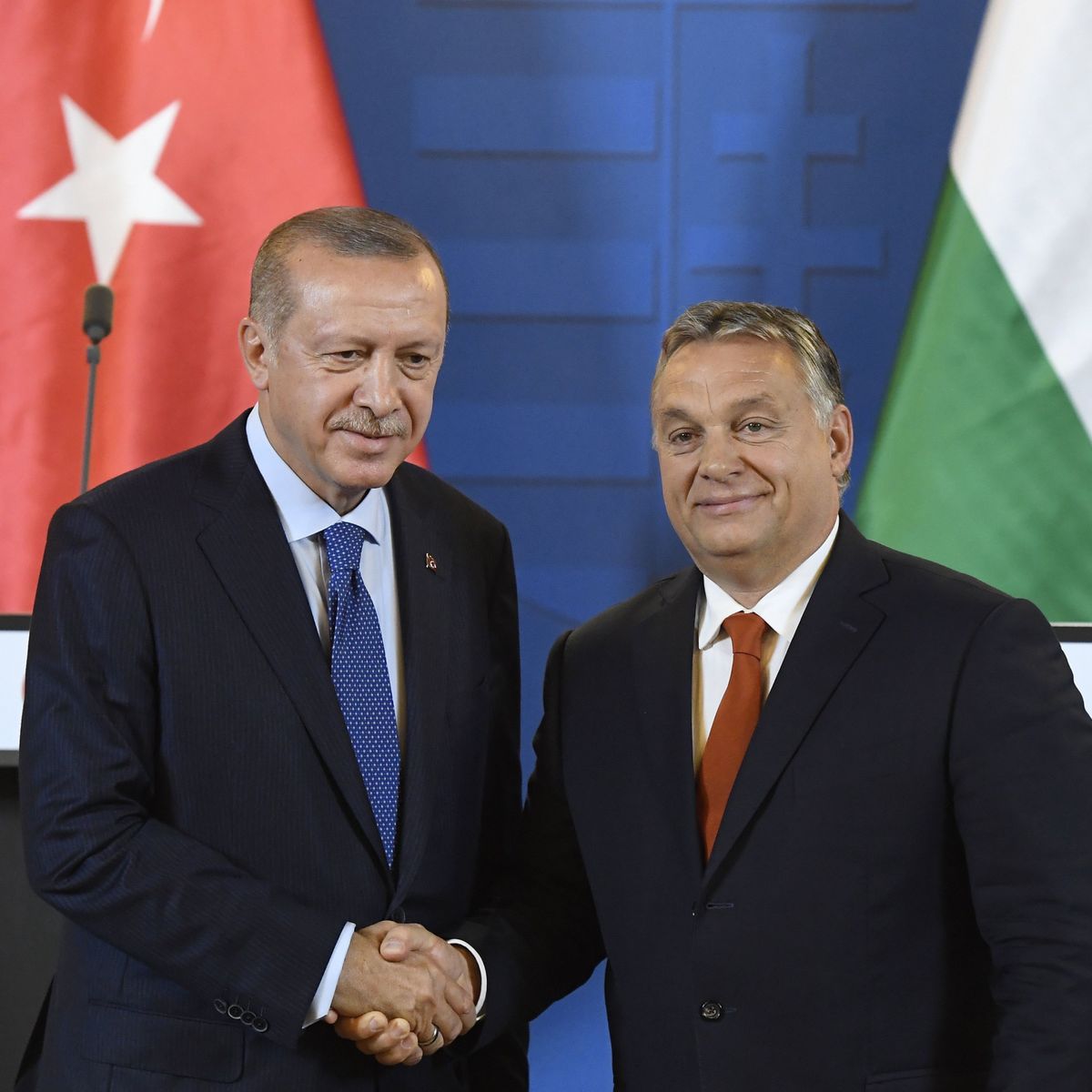
Türkiye’s lukewarm relations with the European Union it sought to join for decades may take a new turn under Hungary’s presidency. The European country started its tenure of a six-month leadership of the bloc on Monday and its program for this period defines Türkiye as an “indispensable partner of the EU in many areas, such as energy security, overall regional security and the fight against illegal migration.”
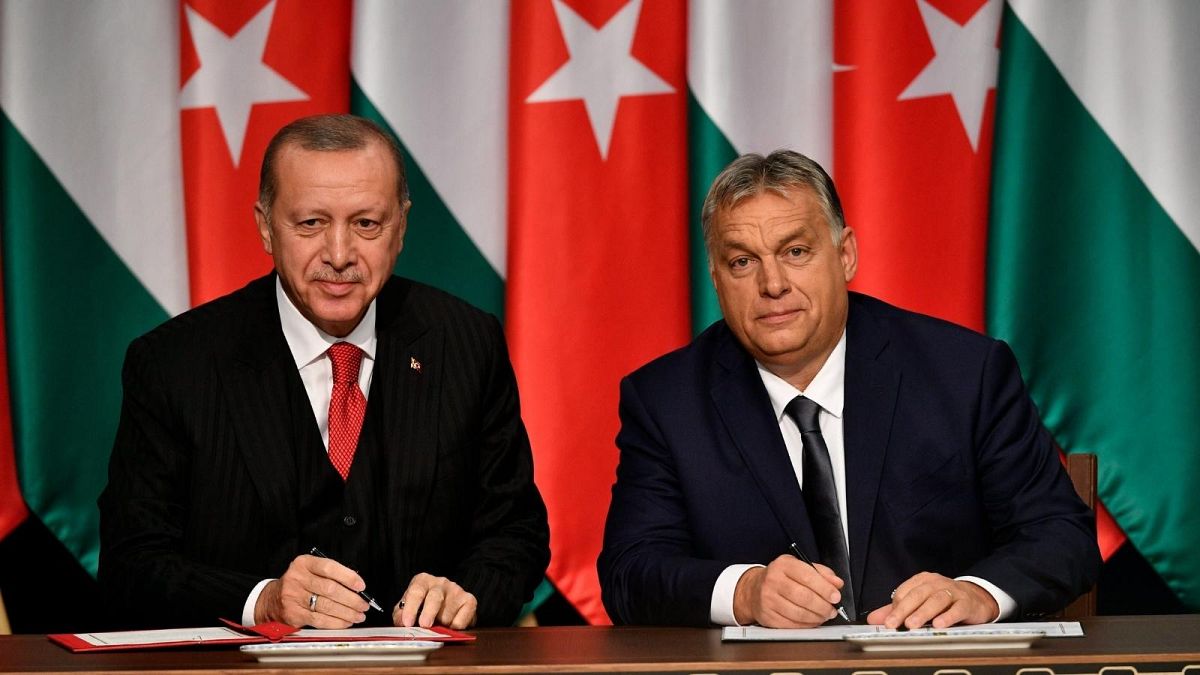
Hungary and Türkiye are already going through a golden era of relations under the leadership of Prime Minister Viktor Orban and President Recep Tayyip Erdoğan, whose personal friendship gave momentum to deep-rooted ties. Relations between Türkiye and Hungary were elevated to the level of strategic partnership in 2013 after establishing the High-Level Strategic Cooperation Council.
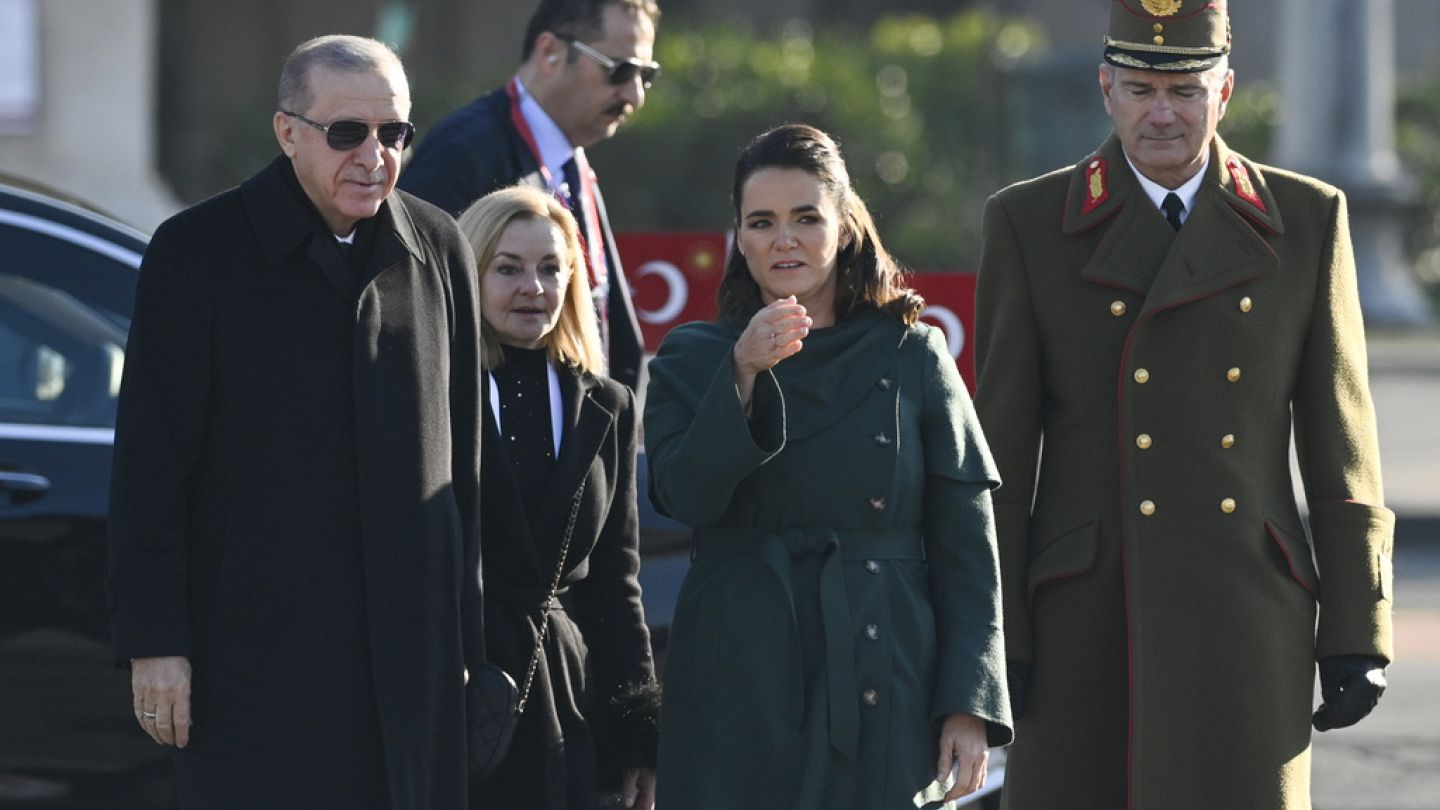
Hungary, however, finds widespread opposition within the EU. Orban, who has run the central European country since 2010, frequently clashes with Brussels over rule-of-law and human rights issues. He is also the only EU leader who has maintained ties with Russia despite its invasion of Ukraine. He has refused to send arms to Kyiv and repeatedly slammed sanctions against Moscow over the war. Last year, the European Parliament adopted a non-binding resolution highlighting Hungary’s “backsliding” on democratic values, and questioning how it could “credibly” assume the bloc’s six-month presidency.
Budapest insists it is ready to assume “the duties and responsibilities” steering the bloc of 27 countries. “We will be honest brokers, working loyally with all member states and institutions,” Hungarian EU Affairs Minister Janos Boka said in mid-June as he unveiled the presidency’s program. “At the same time, we believe Hungary has a strong mandate to pursue a strong European policy. Our work will reflect this vision of Europe,” he added.

Unlike previous presidencies, Hungary highlighted Türkiye’s importance in the program.
“The European Union has a strategic interest in a stable and secure environment in the Eastern Mediterranean, as well as in a cooperative and mutually beneficial relationship with Türkiye. Following the recent European Council conclusions, the Hungarian Presidency will therefore seek to give new impetus to deepening strategic cooperation in areas of common interest, and to promote the EU-Türkiye political dialogue, with regard to Türkiye’s status as a candidate country,” the program says.
Türkiye’s relationship with the European project began in 1959 with the signing of the Ankara Agreement, aiming at gradual economic integration between Türkiye and the European Economic Community (EEC), the precursor to the EU. This marked the start of a long-term vision of convergence and potential future membership for the country.
In 1999, Türkiye’s aspirations took a concrete step forward when it was granted official candidate status for full EU membership. This decision was met with both enthusiasm and caution within the EU, reflecting the mixed nature of integrating a large and culturally diverse nation like Türkiye.
Formal accession negotiations commenced in 2005 during the term of the Justice and Development Party (AK Party) government led by Recep Tayyip Erdoğan, who still governs the country. These negotiations involved a comprehensive assessment of Türkiye’s alignment with the EU’s acquis communautaire, a vast body of laws, regulations and policies that form the foundation of the bloc. The process involved opening and then provisionally closing individual chapters, each representing a specific policy area, upon fulfilling the established criteria.
However, the road to membership proved challenging. Progress on the negotiations was slow. By 2016, only 16 out of the 35 chapters had been opened, and only one had been provisionally closed. By 2018, the accession talks reached a standstill. The EU expressed dissatisfaction with the lack of progress on key issues, while Türkiye criticized what it perceived as double standards and a lack of commitment from the EU. This resulted in a de facto suspension of the accession process, leaving the future of Türkiye’s EU membership in a state of uncertainty.
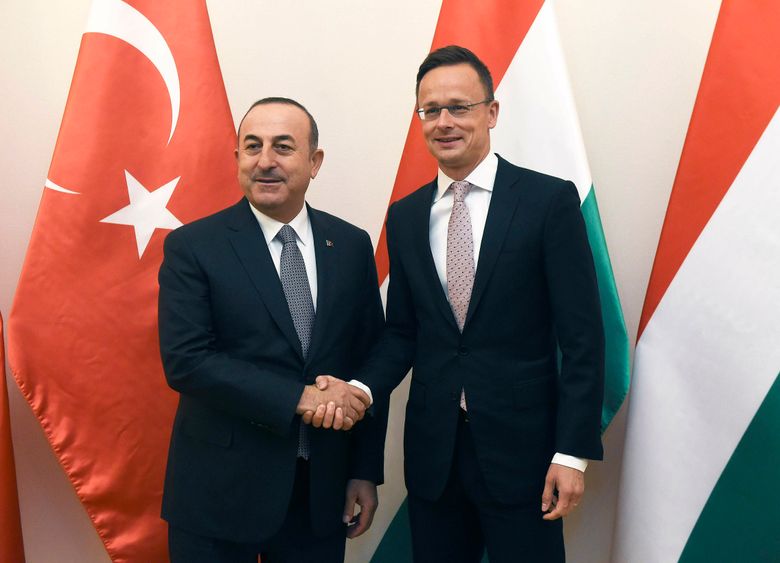
Despite the stalled negotiations, the relationship between the bloc and Türkiye remains multifaceted. Both sides continue to cooperate on various issues of mutual interest. This ongoing engagement, though not directly linked to the accession process, demonstrates the different nature of their relationship.
Since the start of the 2023 summer, Ankara and the bloc have been working to rekindle ties, which, for many years, have operated not toward mutual trust and strategic goals but only out of necessity.
After the presidential and parliamentary elections concluded in May 2023, Brussels shifted its rhetoric from “the importance of cooperation with Türkiye” to “continuing relations on a strategic and forward-looking basis.” The bloc emphasizes strategic interest in developing relations with Türkiye based on cooperation and mutual benefit.
President Erdoğan’s reaffirmation of Türkiye’s commitment to EU membership, coupled with the supportive stance of EU member states like Estonia, underscores the potential for a renewed phase in EU-Türkiye relations. This phase, characterized by strategic dialogues and mutual understanding, is expected to pave the way for addressing longstanding issues and revitalizing the accession process, bringing both parties closer to achieving their shared goals.
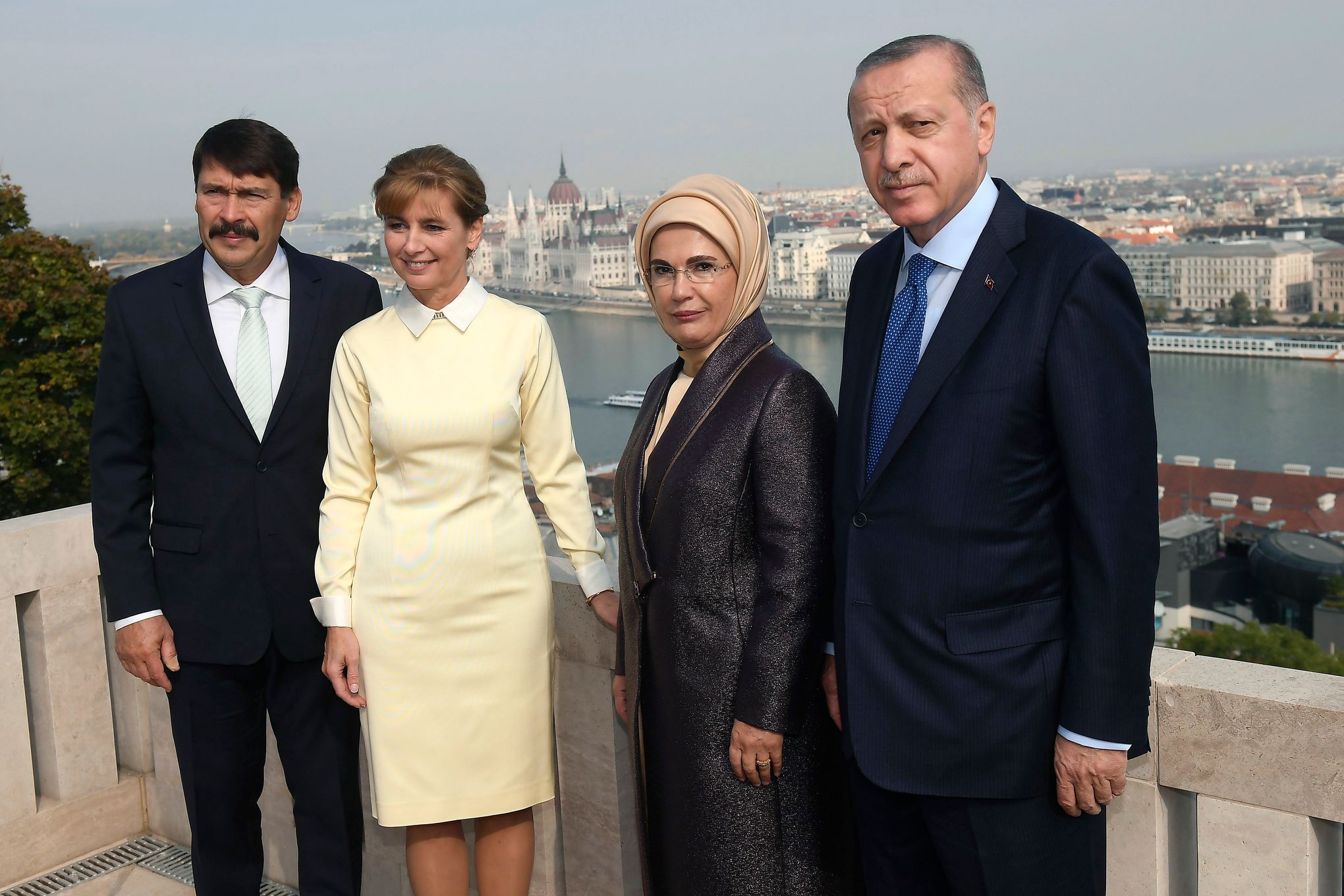
Cyprus question
Hungary’s EU presidency also “places great importance on the resumption and progress of comprehensive settlement negotiations with Cyprus, which could also strengthen EU-Türkiye cooperation,” according to the six-month program.
The island of Cyprus has been mired in a decadeslong dispute between Greek Cypriots and Turkish Cypriots, despite a series of diplomatic efforts by the U.N. to achieve a comprehensive settlement. Ethnic attacks starting in the early 1960s forced Turkish Cypriots to withdraw into enclaves for their safety. In 1974, a Greek Cypriot coup aimed at Greece’s annexation of the island led to Türkiye’s military intervention as a guarantor power to protect Turkish Cypriots from persecution and violence. As a result, the Turkish Republic of Northern Cyprus (TRNC) was founded in 1983. It has seen an on-and-off peace process in recent years, including a failed 2017 initiative in Switzerland under the auspices of guarantor countries Türkiye, Greece and the U.K. Greece and Greek Cypriot side of the island are now both members of the EU which refused to recognize TRNC.
A statement in April by the Special European Council that implied that Türkiye’s relations with the bloc hinged on its stance on Cyprus has drawn the ire of Ankara. The country’s Foreign Ministry has accused the EU of lacking strategic vision on Türkiye. “Türkiye will never accept an approach that links progress in Türkiye-EU relations to the Cyprus issue. It is necessary to abandon an understanding that reduces these multifaceted relations to the Cyprus issue. Such a mentality cannot make a positive and constructive contribution to the problem, nor to the other regional and global issues,” the ministry said in a statement in April.
- Previous Did anyone noticed? World War III is ongoing already and its spreading: Ukraine, Gaza, Hezbollah/Israel, Houties, South China Sea and list will go on…
- Next US F-15EX and F-35 headed to Japan for basing


